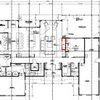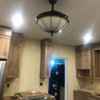Interference to TV every P.M. revisited
catherinet
14 years ago
Related Stories

FEEL-GOOD HOMEThe Pros and Cons of Making Your Bed Every Day
Houzz readers around the world share their preferences, while sleep and housekeeping experts weigh in with advice
Full Story
ORGANIZING10 Principles of Organizing That Work in Every Room
Use these ideas to make it easier to find and put away your things
Full Story
SHOP HOUZZShop Houzz: Sofas for Every Style
Go for a couch that suits your interior design and your personality. With these curated picks, you’re bound to find a pleasing seat
Full Story
COLOREvery Room Needs a Little Bit of Black
‘I’ve been 40 years discovering that the queen of all colors was black.’ — Pierre-Auguste Renoir
Full Story
SMALL HOMESHouzz Tour: A Studio Makes the Most of Every Inch
Thoughtful design transforms a neglected London flat into a stylish multitasking home
Full Story
HOUZZ TV FAVORITESHouzz TV: A New England Farmhouse Explodes With Color
Creativity and color burst from every corner in this unique 18th-century Massachusetts home for an artist and her family
Full Story
HOUZZ TV FAVORITESHouzz TV: See How Early Settlers Lived in This Restored Pilgrim House
Passionate restoration and preservation efforts give a 1665 home an honored place in the present
Full Story
HOUZZ TVHouzz TV: A Most Unusual Indoor-Outdoor Connection
A giant California Sycamore grows through this dream house in the hills of Los Angeles
Full Story
HOUZZ TVHouzz TV: Grandmother and ‘Mad Men’ Inspire a Home
A Chicago man receives family furniture and researches his way to midcentury style, from Mamie Eisenhower walls to Atomic Age decor
Full Story
SMALL HOMESHouzz TV: See a Man Turn a ’70s Airstream Into a Cool, Happy Home
You may have already read the article on Houzz — now check out the video of Jordan Menzel’s restored Airstream trailer home
Full StoryMore Discussions








regus_patoff
catherinetOriginal Author
Related Professionals
Berkley Home Automation & Home Media · Detroit Home Automation & Home Media · Gladstone Home Automation & Home Media · Half Moon Bay Home Automation & Home Media · Highland Park Home Automation & Home Media · Massapequa Home Automation & Home Media · North Merrick Home Automation & Home Media · Riverside Home Automation & Home Media · San Pablo Home Automation & Home Media · Southlake Home Automation & Home Media · Town 'n' Country Home Automation & Home Media · Yeadon Home Automation & Home Media · Concord Electricians · Jefferson Valley-Yorktown Lighting · Laguna Niguel Lightingjimisham
wws944
catherinetOriginal Author
wws944
catherinetOriginal Author
wws944
catherinetOriginal Author
wws944